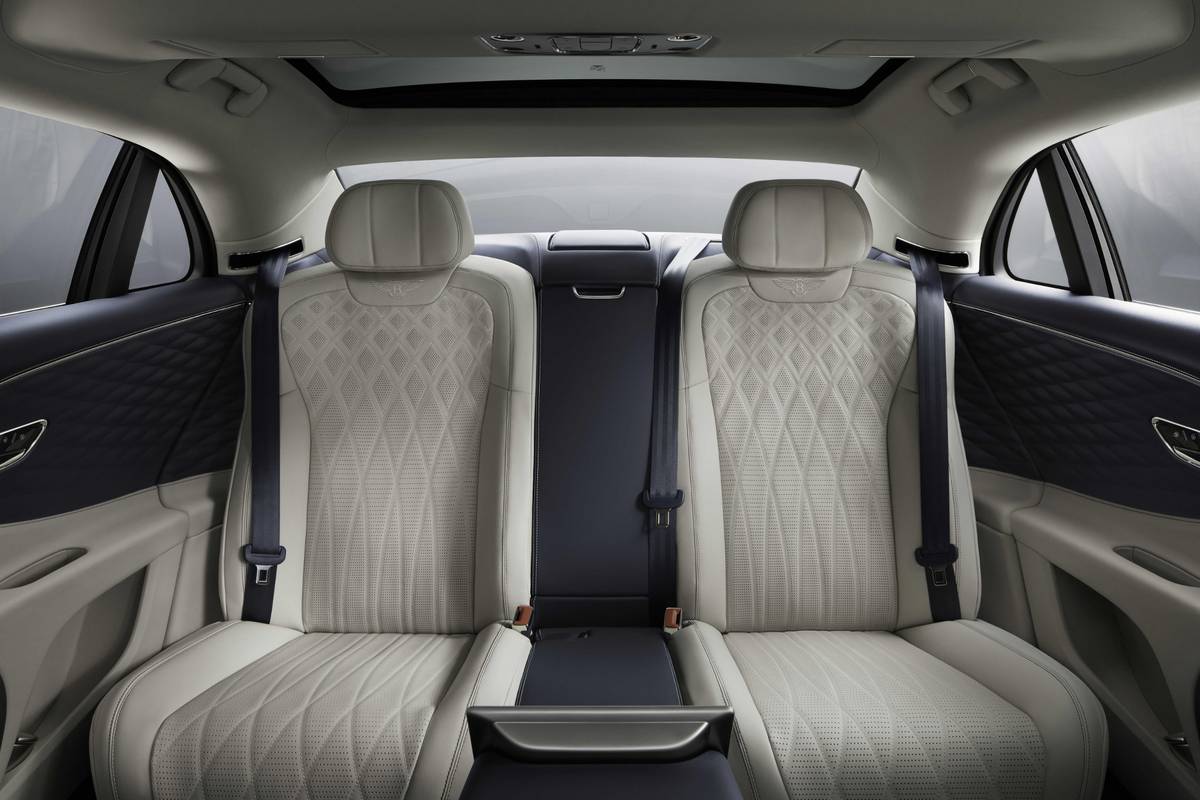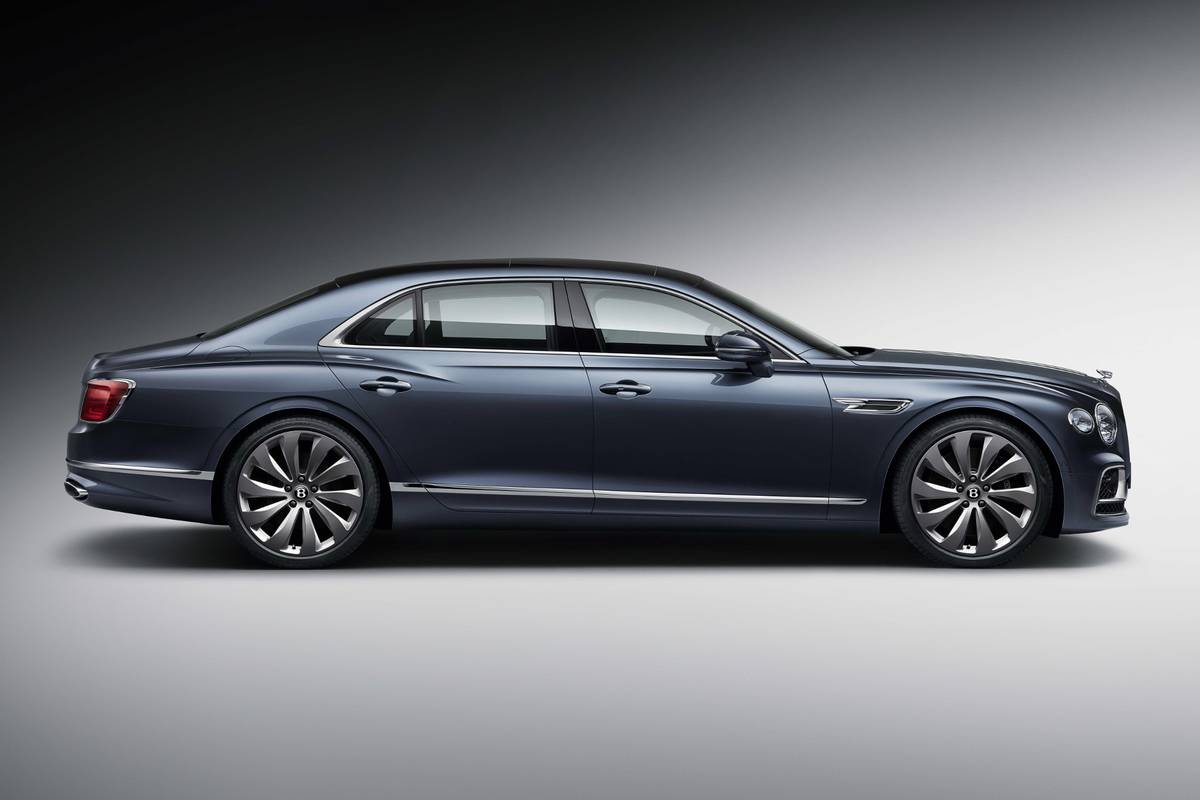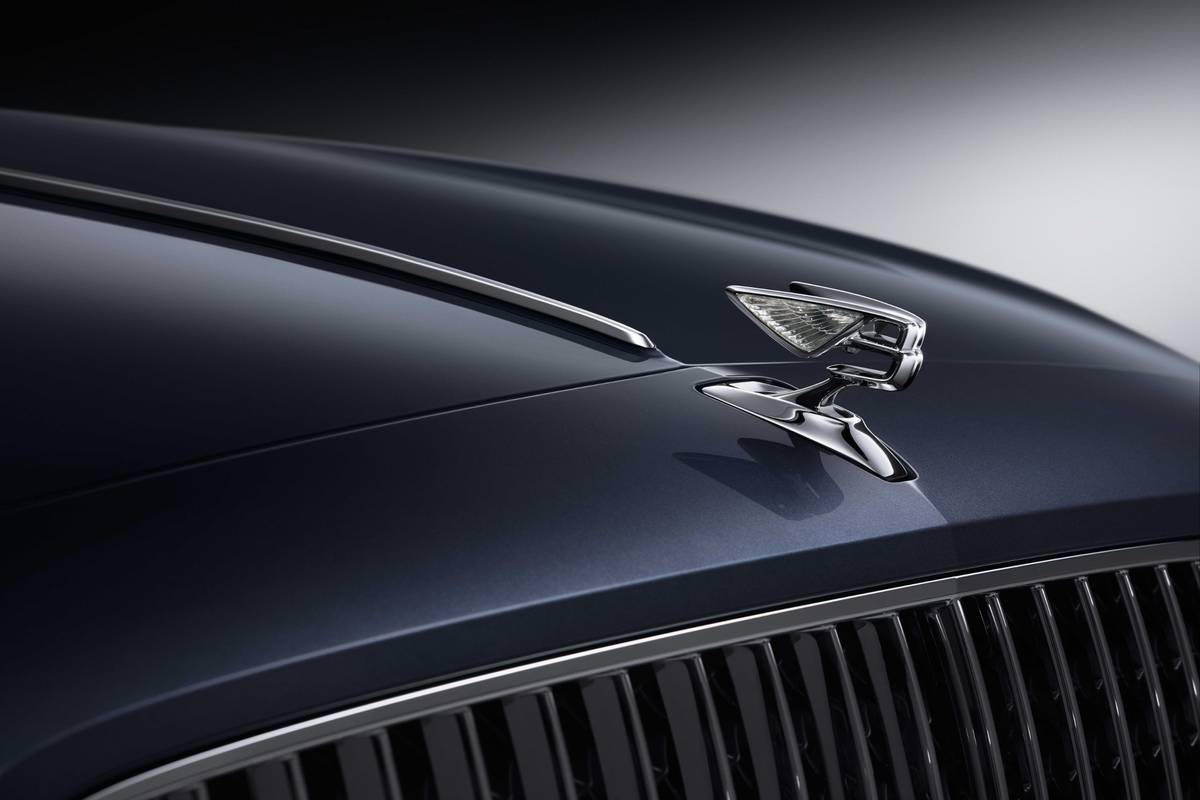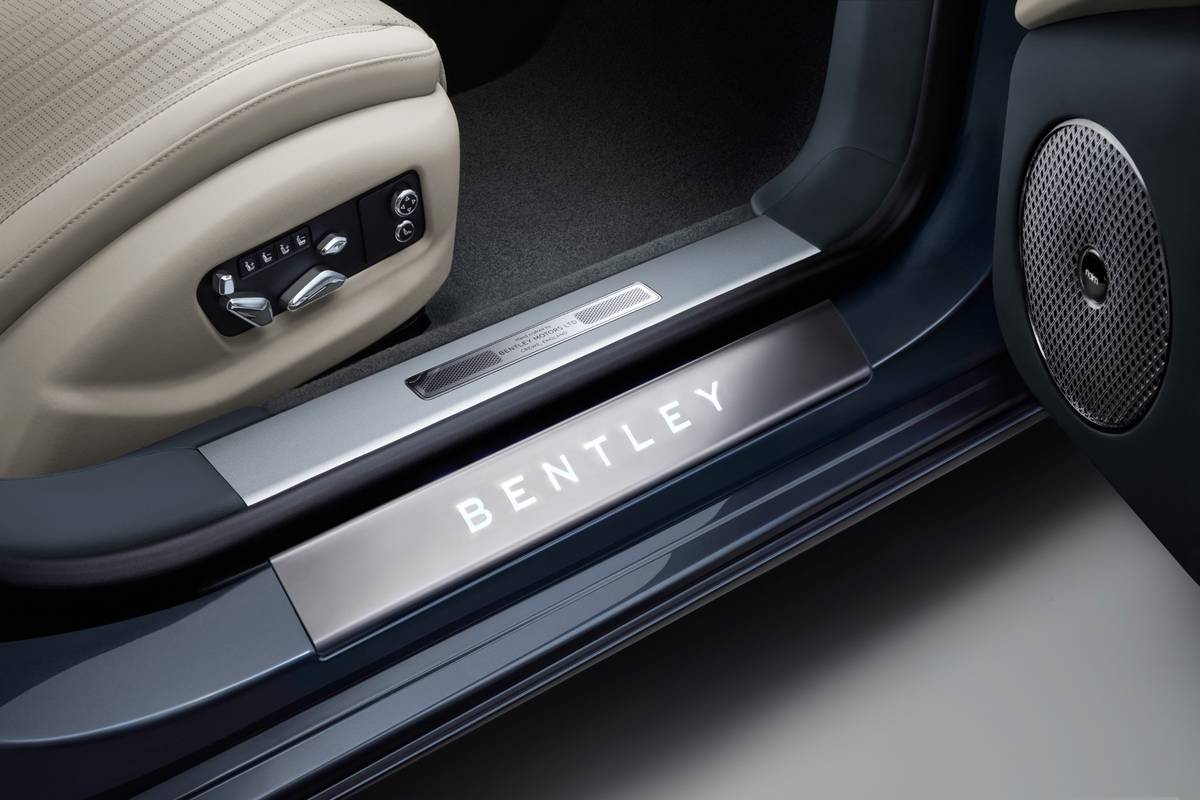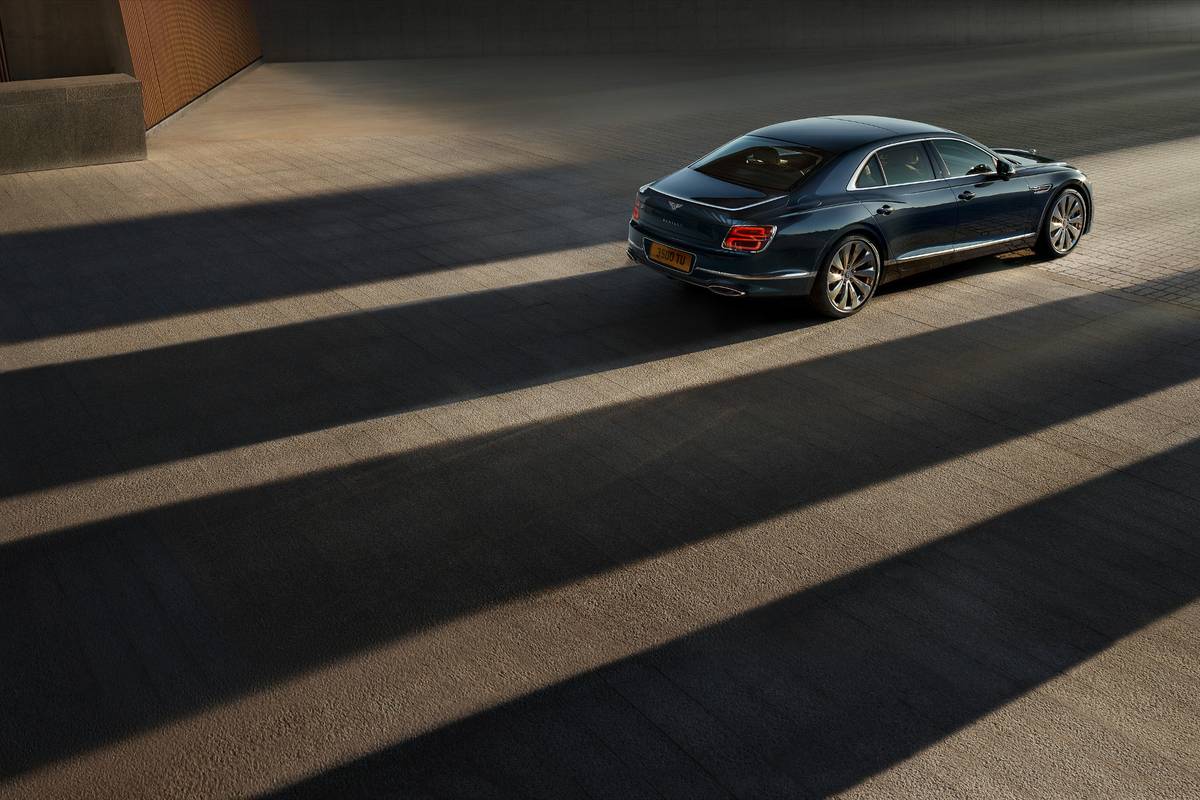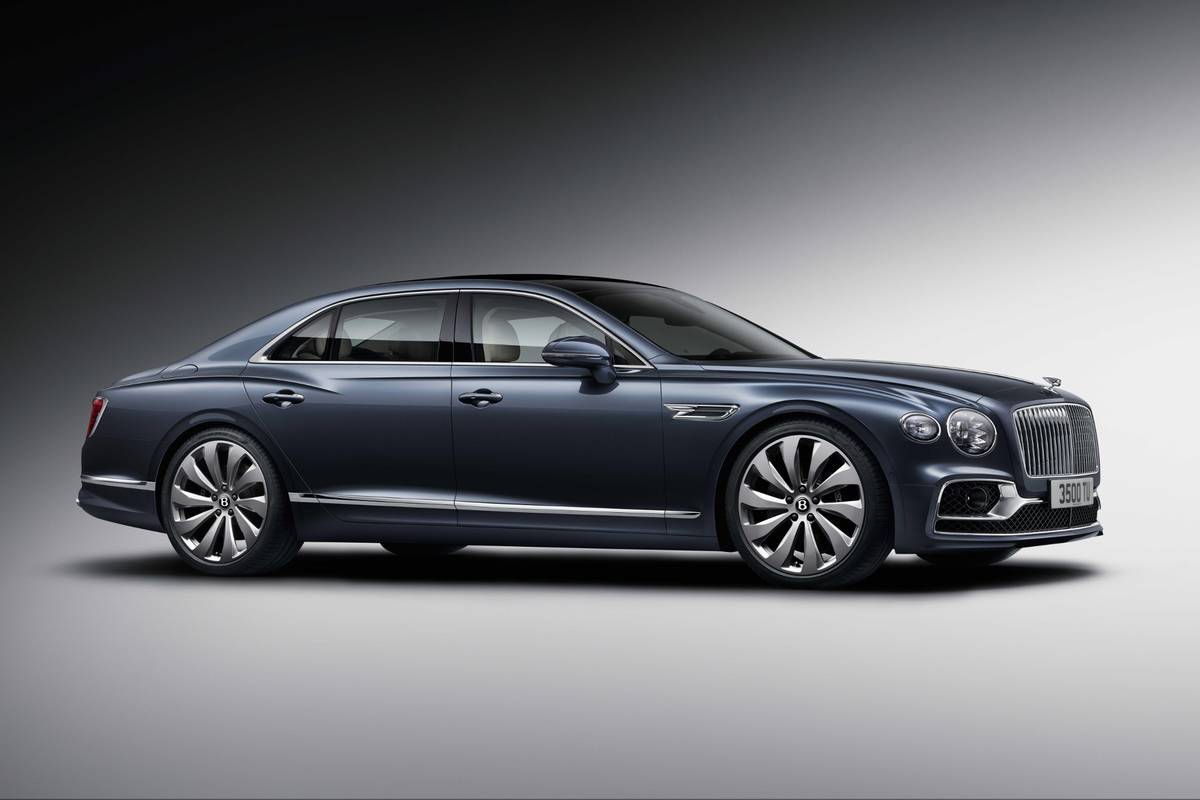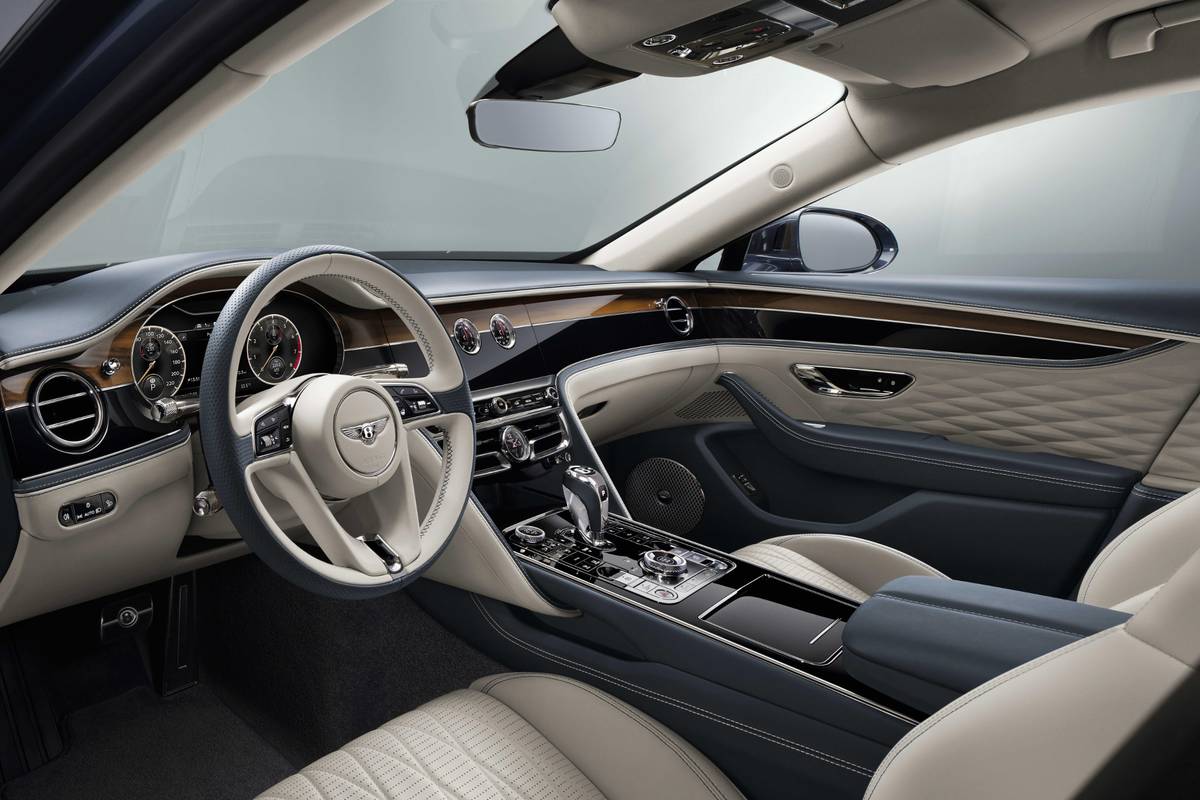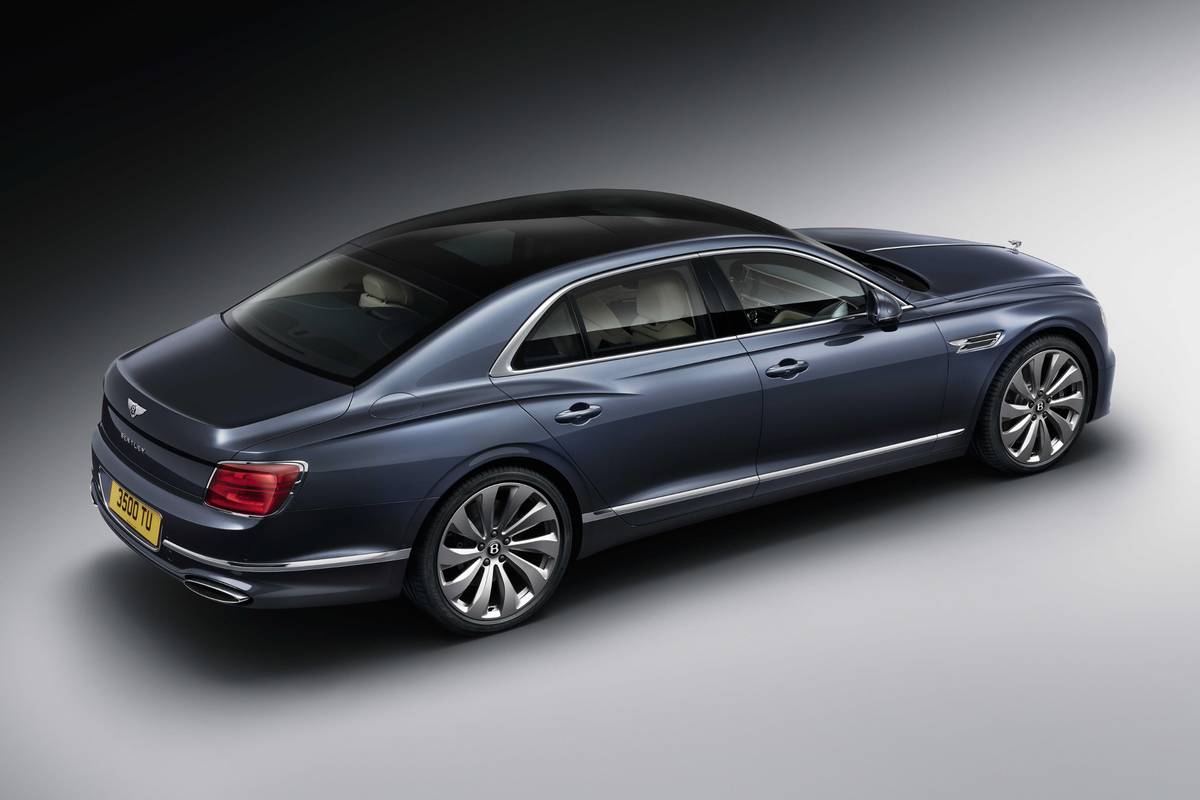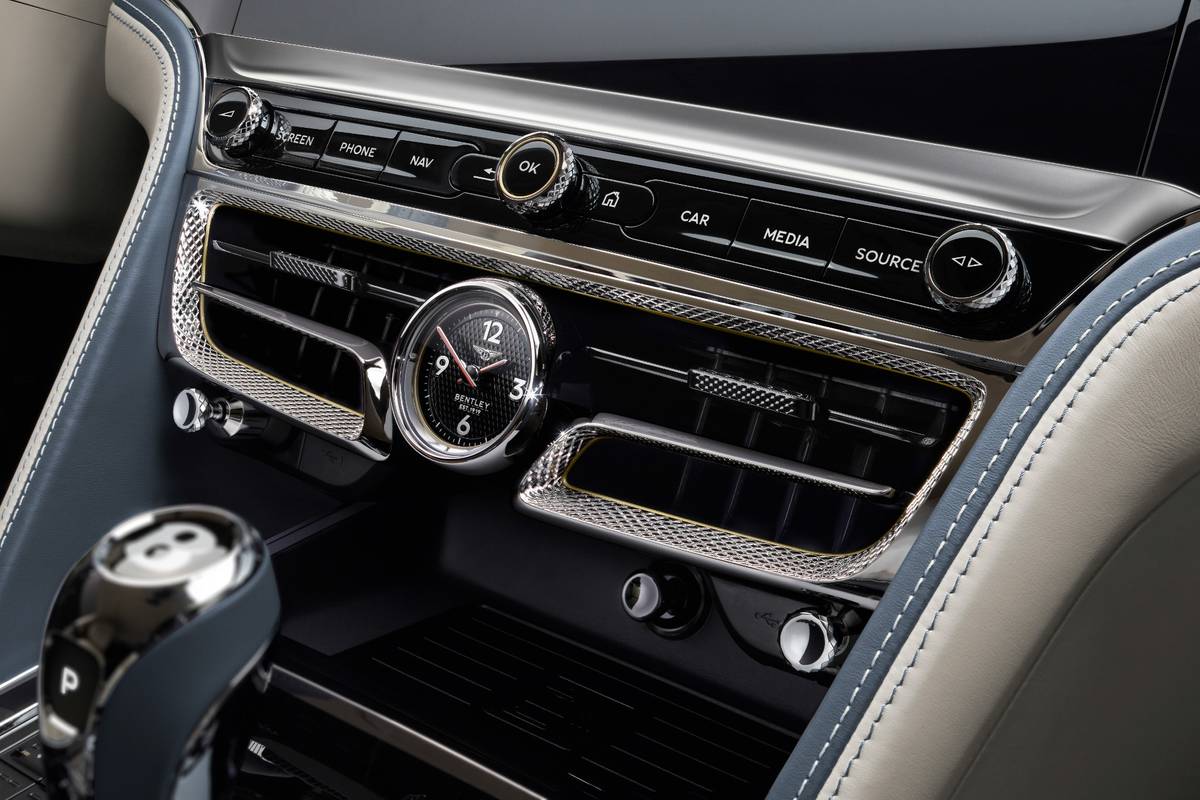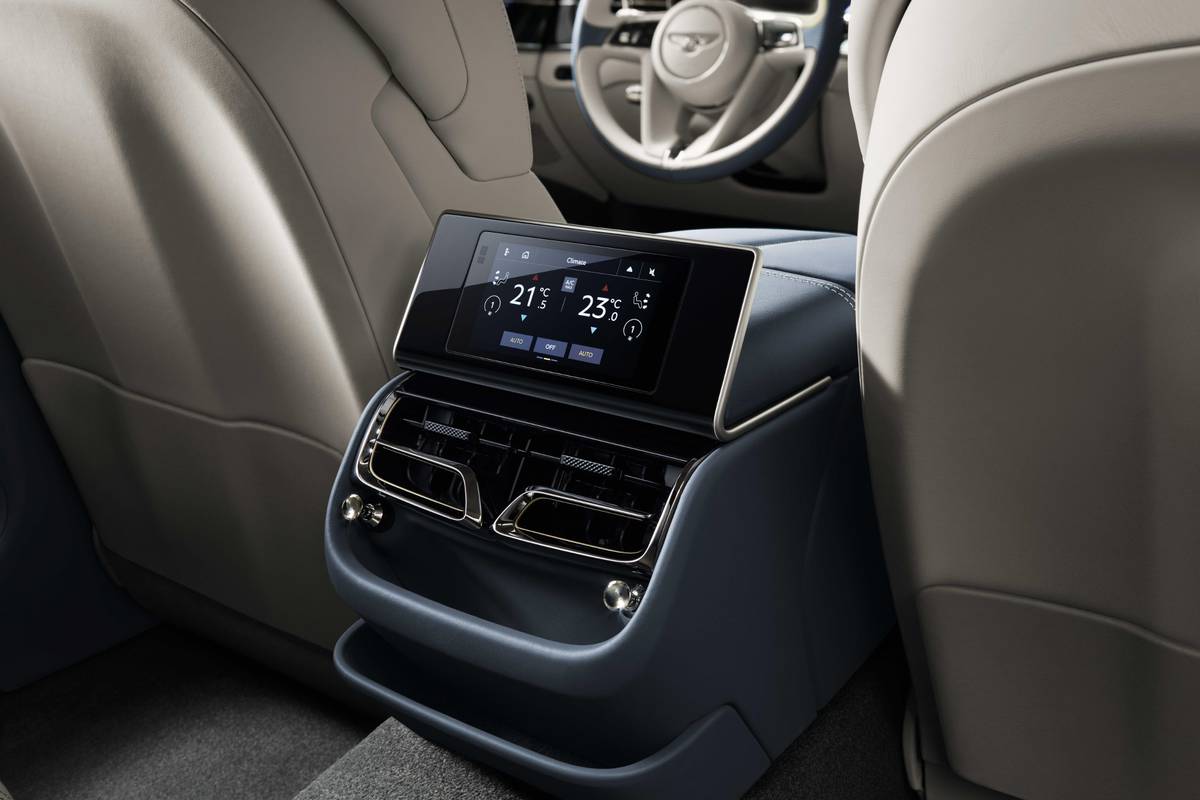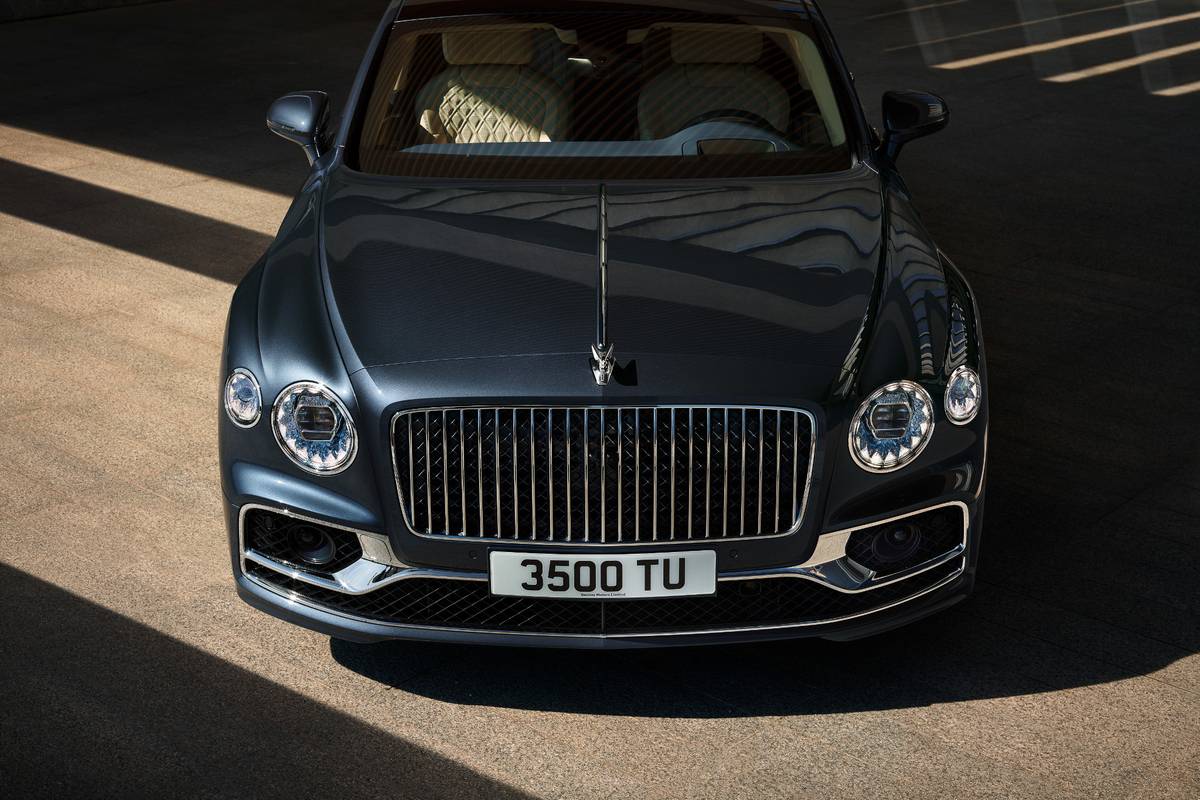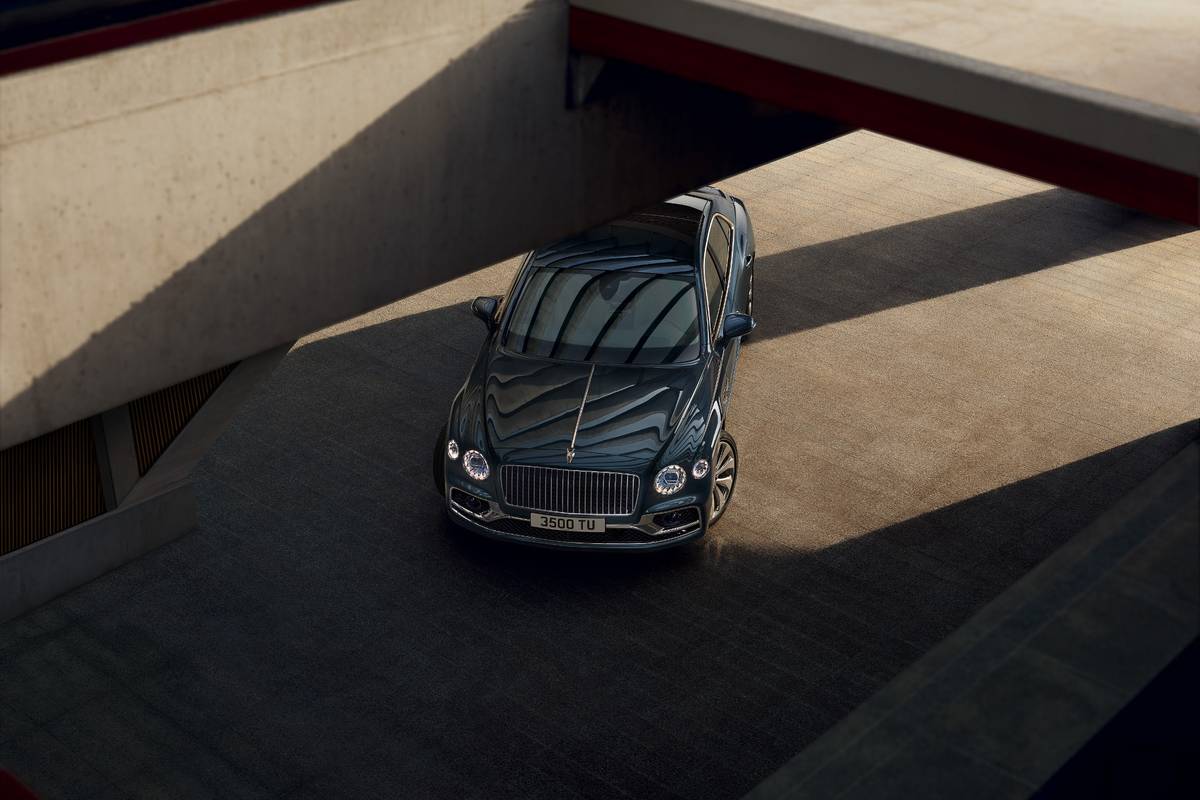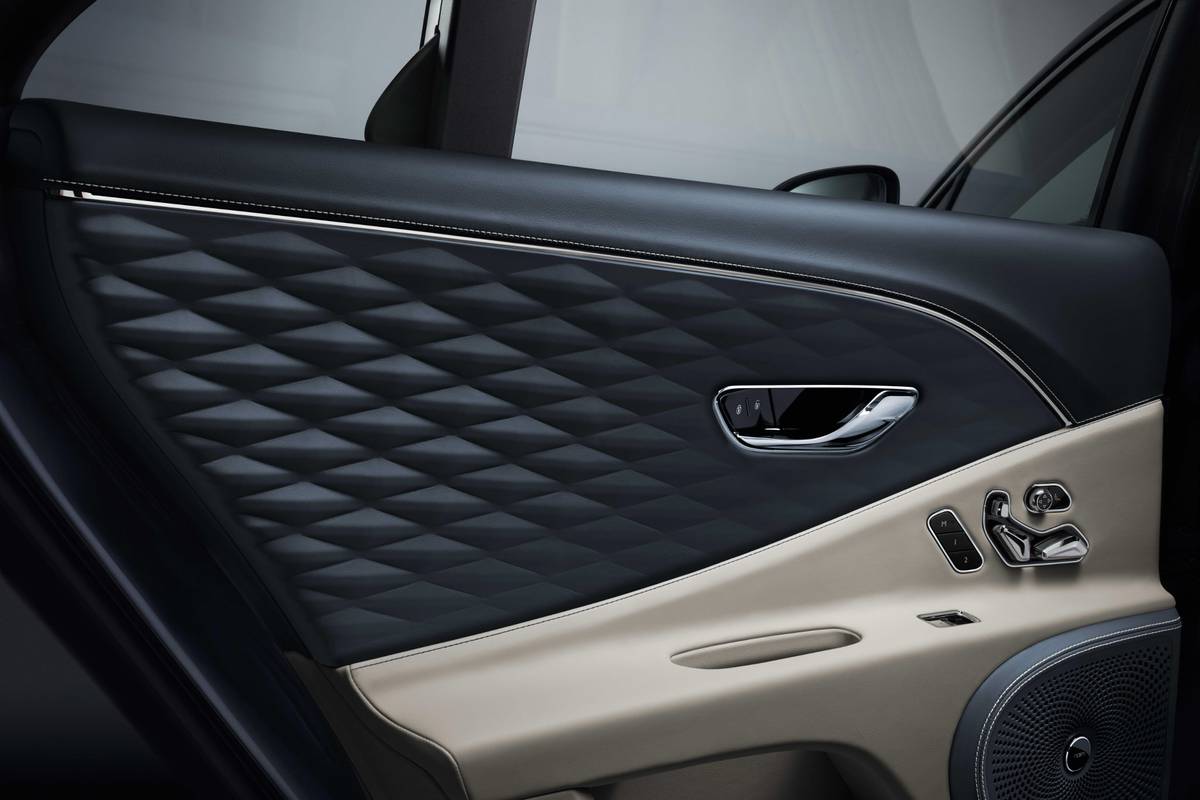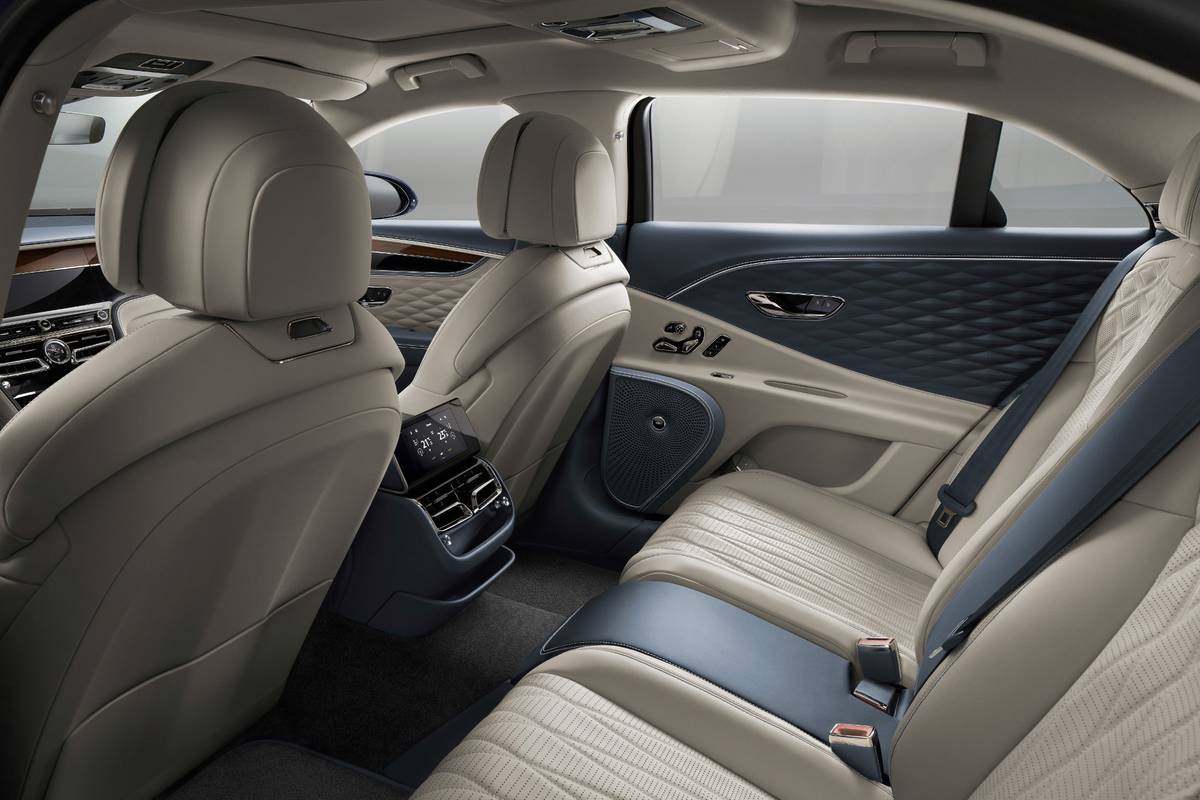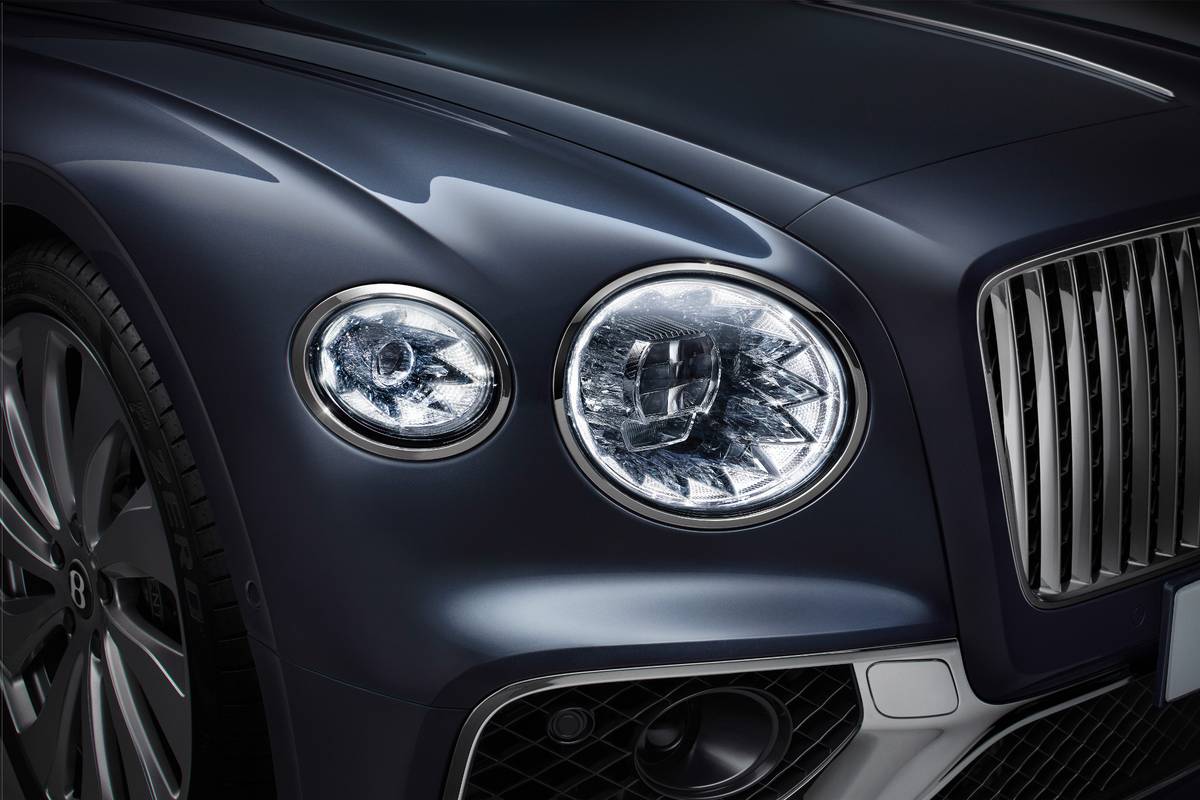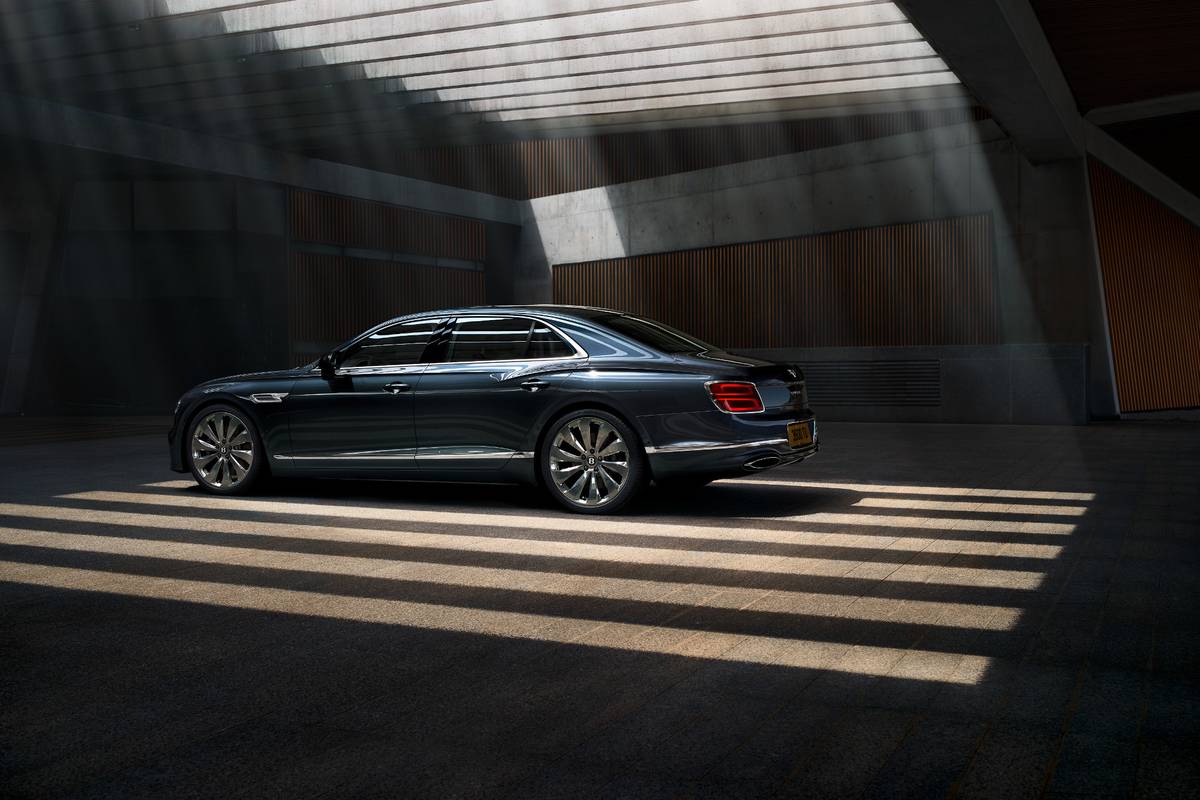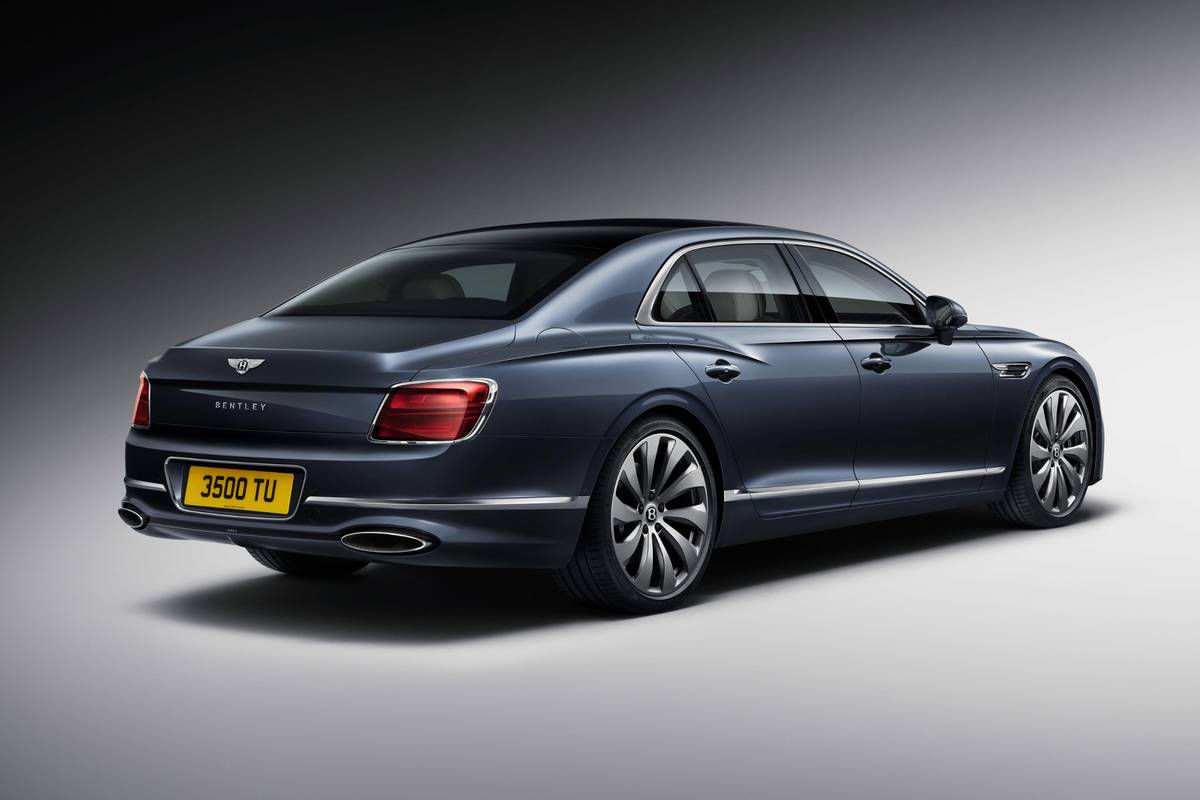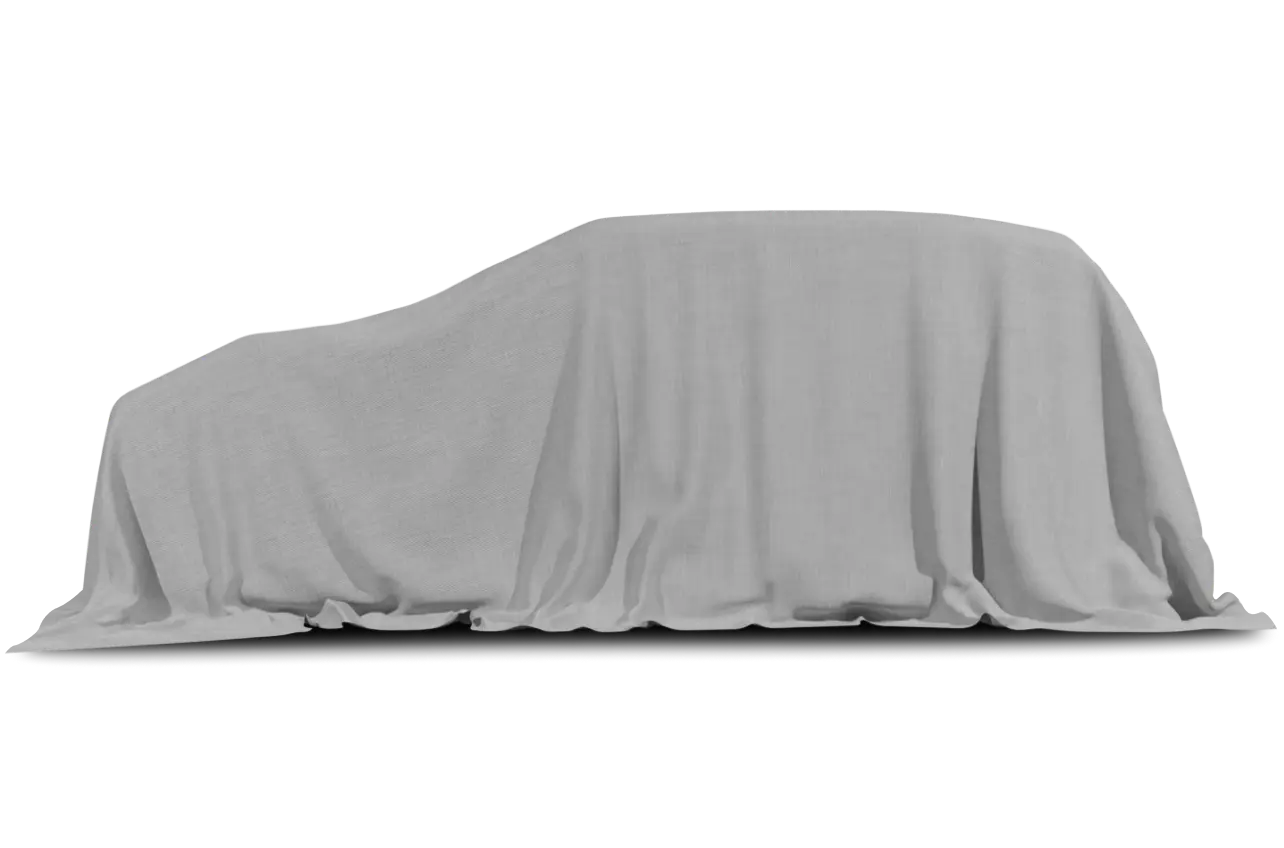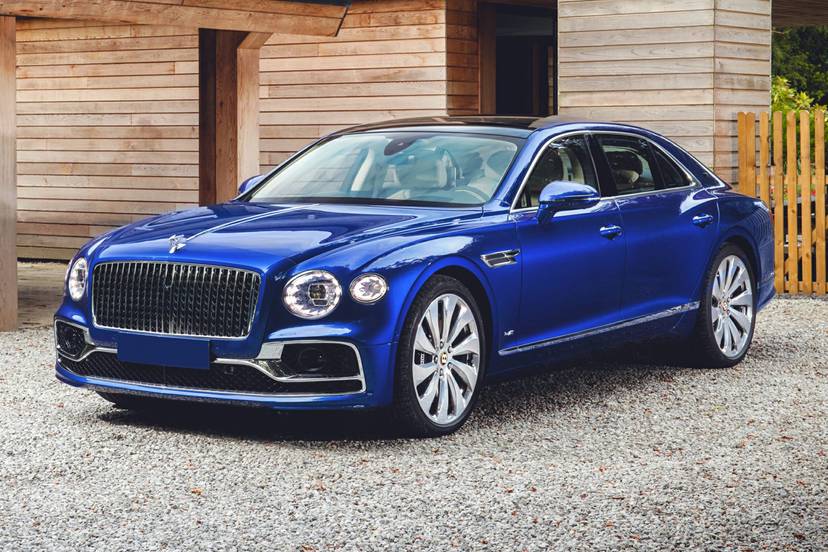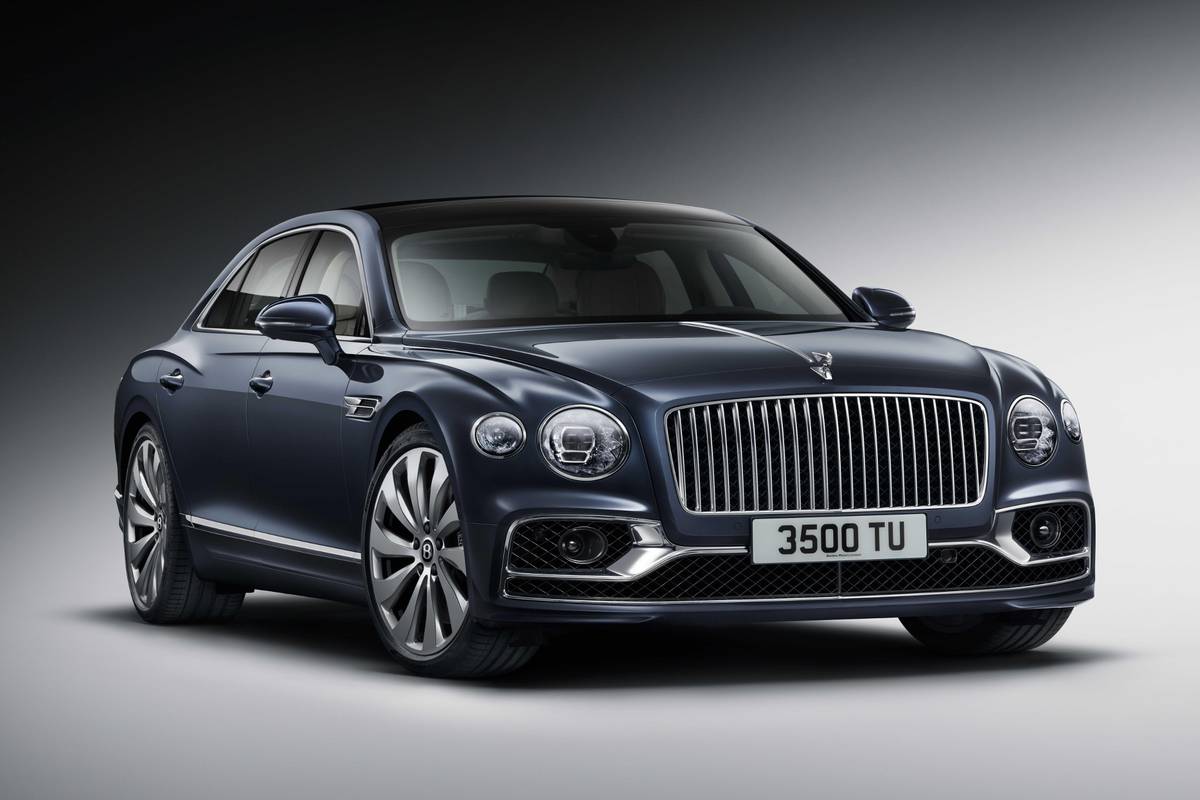
Competes with: Mercedes-Maybach S-Class, or, if there’s a huge price increase, a Rolls-Royce Ghost
Looks like: Bentley redesigned the Flying Spur along the lines of its former coupe namesake, the Continental
Drivetrain: Turbocharged 6.0-liter 12-cylinder engine with a preliminary 626 horsepower mated to an eight-speed, dual-clutch automatic transmission; all-wheel drive
Hits dealerships: Spring 2020
Not two years have passed since Bentley unveiled its redesigned third-generation Continental. Now comes the Flying Spur, a sedan once moored to the Continental by name — it was the Continental Flying Spur until the 2014 model year — with a soup-to-nuts redesign. The Flying Spur arrives as a 2020 model-year vehicle for the U.S., with deliveries beginning next spring. If you’re interested, have your people call their people by then.
Related: 2019 Bentley Continental GT Preview
Hallmarks of the redesigned Flying Spur range from significant to minute. New features include all-wheel steering, crystal-themed LED matrix headlights and adaptive shocks with upgraded air springs that have 60 percent more air for more variance in stiffness. Oh, and the Flying Spur gets an evolution of Bentley’s flying “B” hood ornament for the first time in recent decades. (Lest a certain Doubtfire wander by and commit an act of vandalism, it’s retractable.)
Exterior
If you found the Flying Spur’s second-generation redesign too subtle, its successor should leave no such impression. In place of curvier lines and smaller features, the redesign plunks saucer-sized headlights and a wider grille on a more upright nose. Secondary outboard lights reprise the quad-headlight theme from the prior Flying Spur, at least technically. Like on Bentley’s larger Mulsanne sedan, they’re small enough to seem vestigial.
The tail looks more similar to the outgoing car’s, with sunken taillights and wide, oval tailpipes. The Flying Spur is dimensionally similar to its predecessor, save the wheelbase, which grows 5 inches. That manifests in a shorter front overhang than before — a visual improvement on almost any car, even (or perhaps especially) a Bentley.
Interior
Gone is the dual-cowl dashboard and walled-off center stack, a longstanding layout for the Flying Spur. In its place is a continuous, dash-spanning shelf with a center touchscreen behind a retractable door. Knurled chrome surrounds the air vents below it, with just a single row of audio controls above. Climate controls migrate to the center console itself, sitting around a scepter of a gear selector; most of them have grooved metal, bronze or piano-black details, but we’re frankly just thrilled that they’re physical. After Bentley’s parent company, the Volkswagen Group, abandoned physical center controls for maddening touch-sensitive controls or touchscreens for everything on select cars from its Audi and Porsche brands, we feared Bentley was next. We’re happy to see that the Flying Spur, like the redesigned Continental that preceded it, flies this side of sanity.
Other aspects, of course, show no such restraint. As in the Continental GT, the Flying Spur’s covered touchscreen can rotate a wood veneer or three analogue dials (outside temperature, compass and chronometer) in place of a 12.3-inch touchscreen. The doors can have three-dimensional quilted inserts in leather or wood, and three available stereos culminate in a Naim system with 2,200 watts and 19 speakers. Stereo wattage and speaker count are like horsepower — it’s the results, not the formula, that matters — but the sheer spectacle of such numbers is just plain nuts. (Macadamia nuts, in Bentley’s case.)
Under the Hood
Although the Flying Spur is all-wheel drive, its twin-turbo 12-cylinder engine routes power solely to the rear wheels in normal conditions. It goes up front only when needed for traction, with varying limits depending on drive mode. The engine cranks out 626 horsepower and 664 pounds-feet of torque by Bentley’s preliminary specifications — enough to get the sedan to 60 mph in a manufacturer-estimated 3.7 seconds. An eight-speed, dual-clutch automatic transmission is standard.
Such acceleration is considerably quicker than the outgoing Flying Spur’s speediest variant, the W12 S, as well as the rival Mercedes-Maybach S650. It’s impressive for a car that weighs some 5,200 pounds, but if going fast is a top priority, it’s worth noting that titanic curb weights work against outright acceleration among such 12-cylinder ilk. With four fewer cylinders and some 600 pounds’ less mass, the Mercedes-AMG S63 can shred 60 mph in just 3.4 seconds.
Cars.com’s Editorial department is your source for automotive news and reviews. In line with Cars.com’s long-standing ethics policy, editors and reviewers don’t accept gifts or free trips from automakers. The Editorial department is independent of Cars.com’s advertising, sales and sponsored content departments.










